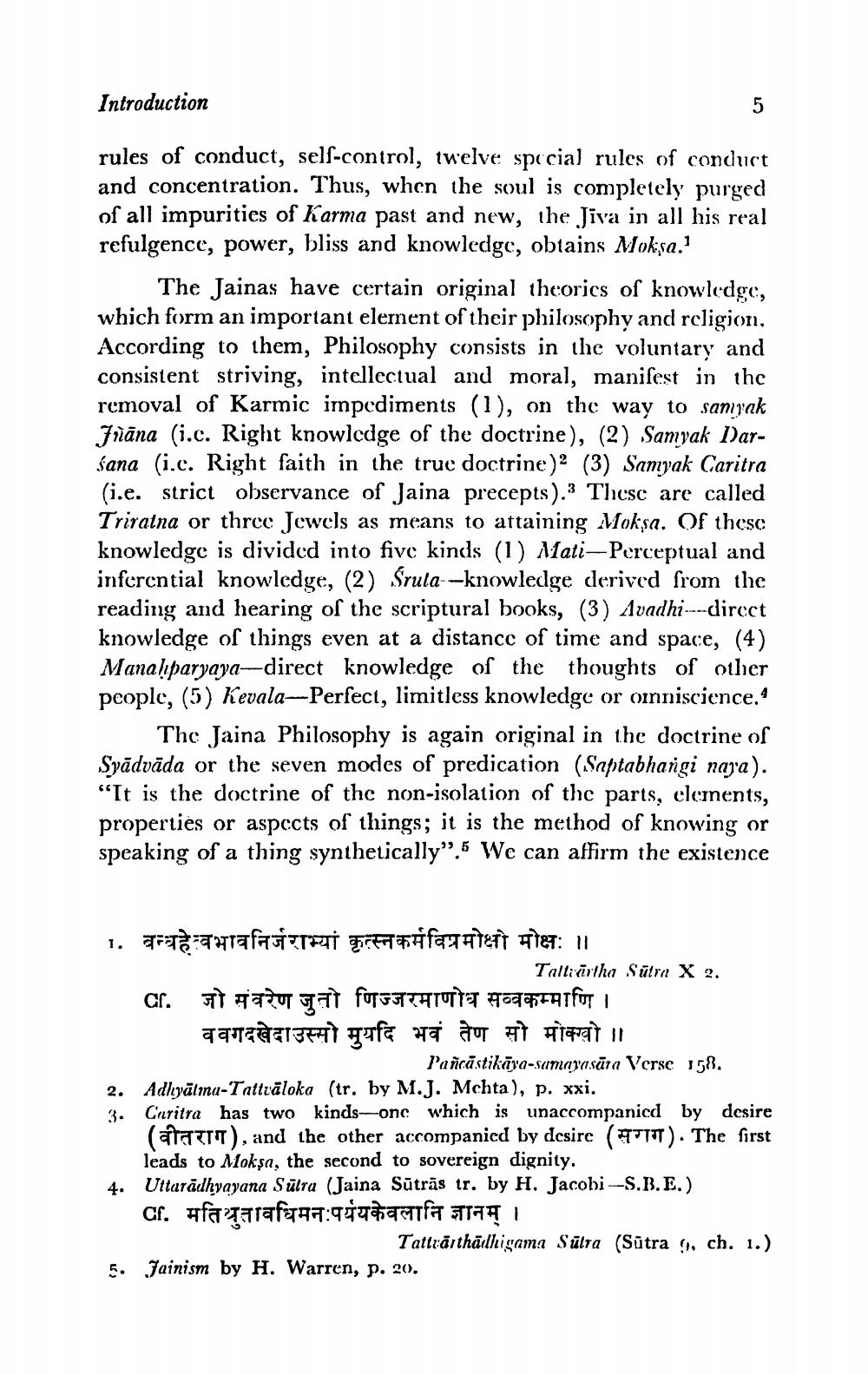________________
Introduction
rules of conduct, self-control, twelve special rules of conduct and concentration. Thus, when the soul is completely purged of all impurities of Karma past and new, the Jiva in all his real refulgence, power, bliss and knowledge, obtains Mokṣa.1
The Jainas have certain original theories of knowledge, which form an important element of their philosophy and religion. According to them, Philosophy consists in the voluntary and consistent striving, intellectual and moral, manifest in the removal of Karmic impediments (1), on the way to samyak Jnana (i.c. Right knowledge of the doctrine), (2) Samyak DarSana (i.c. Right faith in the true doctrine)2 (3) Samyak Caritra (i.e. strict observance of Jaina precepts). These are called Triratna or three Jewels as means to attaining Moksa. Of these knowledge is divided into five kinds (1) Mati-Perceptual and inferential knowledge, (2) Śruta -knowledge derived from the reading and hearing of the scriptural books, (3) Avadhi---direct knowledge of things even at a distance of time and space, (4) Manaḥparyaya-direct knowledge of the thoughts of other people, (5) Kevala-Perfect, limitless knowledge or omniscience.
3
1.
The Jaina Philosophy is again original in the doctrine of Syadvāda or the seven modes of predication (Saptabhangi naya). "It is the doctrine of the non-isolation of the parts, elements, properties or aspects of things; it is the method of knowing or speaking of a thing synthetically".5 We can affirm the existence
वन्धहेत्वभावनिर्जराभ्यां कृत्स्नकर्मविप्रमोक्षो मोक्षः ॥
Tallvartha Sutra X 2.
5
Cr. जो संवरेण जुत्तो णिज्जरमाणोच सव्वकम्माणि । ववगदखेदाउस्सो मुयदि भवं तेण सो मोक्खो ॥
Pañcāstikāya-samayasāra Verse 158.
2. Adhyatma-Tattvaloka (tr. by M.J. Mehta), p. xxi.
3. Caritra has two kinds-one which is unaccompanied by desire (a), and the other accompanied by desire (1). The first leads to Moksa, the second to sovereign dignity.
4. Uttaradhyayana Sutra (Jaina Sūtrās tr. by H. Jacobi-S.B. E.)
Cr. मतिश्रुतावधिमन:पर्यय केवलानि ज्ञानम् ।
5. Jainism by H. Warren, p. 20.
Tattvärthadhigama Sutra (Sūtra 9, ch. 1.)




